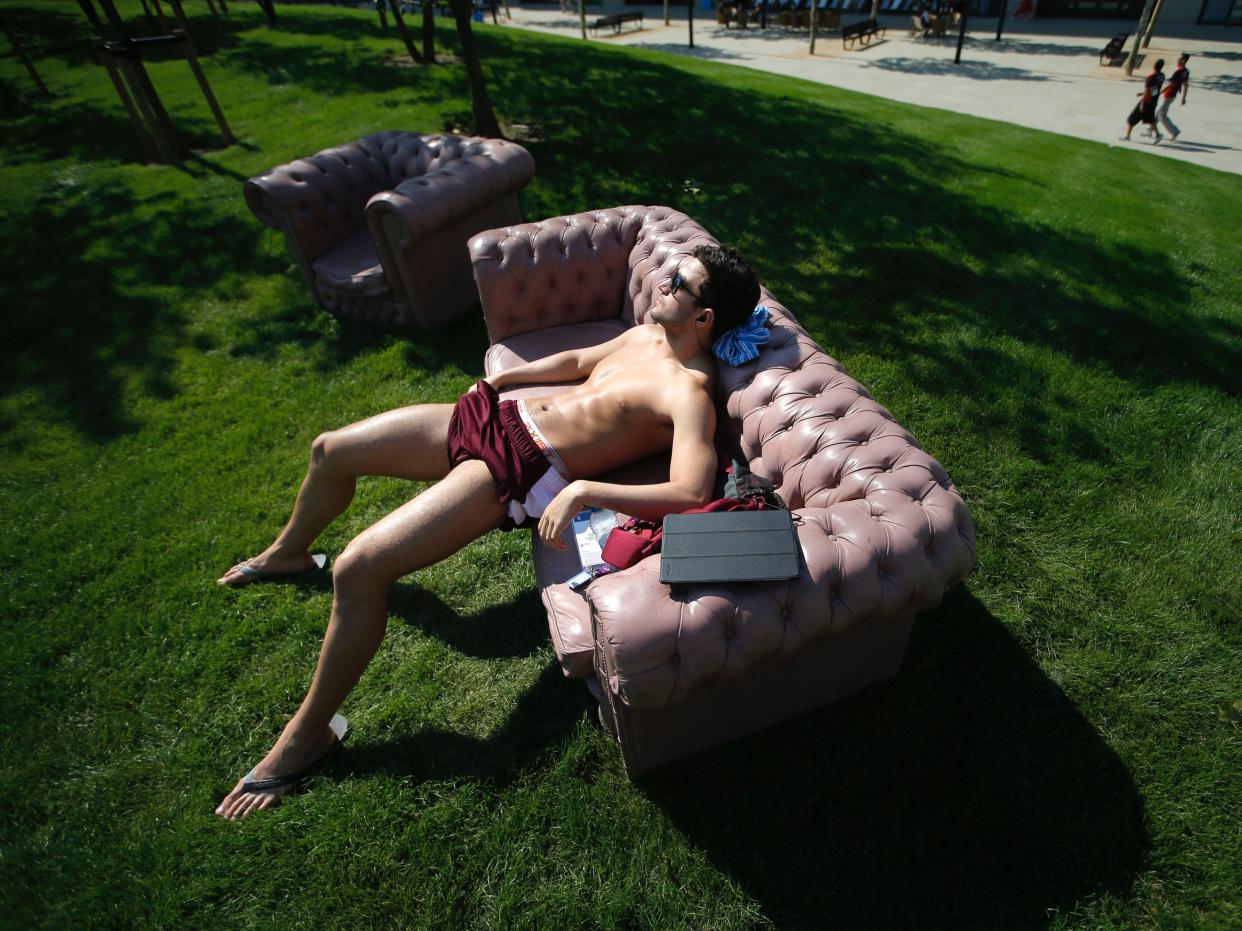Vitamin D may be a good defense against the coronavirus, according to several new reports. Here's what you need to know.

REUTERS/Jae C. Hong
Three UK organizations have released new reports advising people to get enough vitamin D, either through sunlight or supplements, as a precaution against the novel coronavirus.
Several previous studies have linked vitamin D deficiency to higher risk of severe coronavirus infection.
However, there's not yet sufficient evidence to fully understand if the nutrient plays a causal role in preventing the disease, although it has been shown to support a healthy immune system.
Related video: How viruses like the coronavirus mutate
While there's still no evidence that vitamin D can cure or prevent the coronavirus, three major health organizations in the UK are advising people to ensure they get enough vitamin D, from the sun or supplements, to be on the safe side.
The Scientific Advisory Commission on Nutrition, the National Institute for Health and Care Excellence, and the Royal Society all published reports last month detailing what we know (and don't) about the coronavirus and vitamin D, concluding that we need more research to fully understand the connection.
In the meantime, however, these organizations advise a stronger emphasis on meeting the current recommended vitamin D intake, not only as a precaution against coronavirus, but for general health too.
Vitamin D is important for health, and might even stave off some illnesses
Vitamin D is an essential nutrient for health, including the immune system.
Normally, humans can produce vitamin D naturally through direct exposure to sunlight — we also get vitamin D in certain foods, like eggs, fatty fish, and beef liver. In total, the UK recommends people get 10 micrograms of vitamin D per day; the US recommendation is slightly higher, 15 micrograms for most people, and 20 micrograms for those over 70.
Spending too much time indoors, whether in the colder winter months or in quarantine, can potentially put you at risk of a vitamin D deficiency. Not enough of the nutrient is directly linked to muscle, tooth, and bone health issues, according to the recent Royal Society report.
That could be a problem when it comes to illness — there's some evidence that a lack of vitamin D is linked to infections, particularly in the respiratory tract, according to the Scientific Advisory Commission on Nutrition report.
But there's no evidence showing a direct cause link between vitamin D and better coronavirus outcomes
However, while COVID-19 (the disease caused by the novel coronavirus) does attack the respiratory system, there's no evidence vitamin D can cure or prevent the illness.
Several previous studies have made a link between coronavirus outcomes and vitamin D deficiency — however, that research has included other variables that could explain the number and severity of COVID-19 cases, and the research is far from showing a causal link.
But at least one study has also shown no apparent link between vitamin D and coronavirus outcomes, leading some researchers to remain skeptical about the possible connection.
Previous research has cautioned consumers about exaggerated claims about vitamin D and the coronavirus, particularly with regard to supplements or extremely high doses through an IV: too much vitamin D can can cause a toxic buildup of calcium and lead to kidney issues, according to the Mayo Clinic.
As such, there's still much more research to be done on the implications of vitamin D for different coronavirus outcomes.
Charles Bangham, professor of immunology at Imperial College London and co-author of the Royal Society paper, told the Financial Times that Vitamin D deficiency could in part explain why people with darker skin tones have been hardest-hit by the coronavirus. Black and brown people have more melanin that blocks UV rays from the sun, so naturally-producing the nutrient from sunlight takes longer for people with darker skin.
However, there is strong evidence that systemic racism can explain why the virus disproportionately affects people of color, as the result of past and present inequalities in everything from healthcare to socio-economic resources.
Read more:
Huge doses of vitamin D will not cure or protect you from the coronavirus, a new report says
Read the original article on Insider

